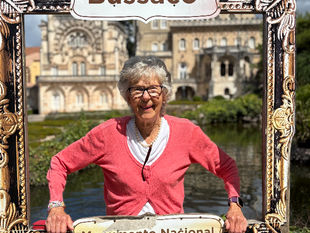
What if the secret to a long and fulfilling life isn’t just adding years to your lifespan but ensuring those years are healthy, vibrant, and full of purpose? That’s the promise of biohacking for longevity and anti-ageing (or rather ageing well!)—a science-driven approach to enhancing healthspan, the period of life spent in good health, free from chronic illness and disease.
This blog explores cutting-edge strategies for optimising longevity while maintaining physical and mental vitality.
Why Biohacking and Longevity Matters
The World Economic Forum predicts that by 2050, the global population of individuals aged 60+ will double. However, living longer doesn’t always equate to living well. Chronic illnesses like heart disease, diabetes, and cognitive decline can diminish quality of life. Longevity biohacking focuses on extending healthspan, enabling people to thrive in their later years.
Did You Know? Regular physical activity can add up to 7 years to your life, according to the American Heart Association.
1. Cellular Health: The Foundation of Longevity
Aging begins at the cellular level. Factors like oxidative stress, inflammation, and DNA damage accelerate aging.
Strategies for Cellular Health:
Intermittent Fasting (IF): Periods of fasting trigger autophagy, a cellular process that removes damaged components and promotes repair. A study in Cell Metabolism found that IF can improve metabolic health and reduce markers of ageing.
Antioxidants: Found in foods like berries, dark chocolate, and green tea, antioxidants combat oxidative stress.
NAD+ Boosters: Supplements like nicotinamide riboside (NR) support energy production and DNA repair, enhancing cellular longevity.
2. Hormesis: The Benefits of Stress
Hormesis refers to exposing the body to small, controlled stressors that improve resilience and longevity.
Examples of Hormetic Stressors:
Cold Exposure: Techniques like cold showers or cryotherapy can enhance immune function and reduce inflammation.
Heat Therapy: Regular sauna use is associated with a 40% lower risk of cardiovascular disease, according to a study in JAMA Internal Medicine.
Exercise: High-Intensity Interval Training (HIIT) not only boosts cardiovascular health but also promotes mitochondrial function, vital for ageing well.
3. Nutrition for Longevity
Diet plays a crucial role in anti-aging. Certain foods and dietary patterns are proven to extend health span.
Key Dietary Strategies:
Plant-Based Eating: A Mediterranean diet rich in vegetables, nuts, and healthy fats can reduce the risk of chronic disease by 30%, as shown in The New England Journal of Medicine.
Caloric Restriction: Reducing calorie intake while maintaining nutrition has been linked to longer lifespans in multiple studies.
Blue Zones Diet: Inspired by regions with the longest-lived populations, this diet emphasizes beans, whole grains, and minimally processed foods.
4. Cognitive Health: Aging with Clarity
Cognitive decline is one of the most feared aspects of ageing, but biohacking offers hope.
Brain-Boosting Techniques:
Nootropics: Natural compounds like Lion’s Mane mushroom and Omega-3 fatty acids support memory and focus.
Brain Training: Apps like Lumosity or Elevate enhance cognitive function through daily exercises.
Mindfulness Meditation: Reduces stress and preserves grey matter, as documented in NeuroImage.
5. The Role of Sleep in Ageing well
Quality sleep is essential for recovery and longevity. Chronic sleep deprivation accelerates ageing by increasing inflammation and impairing cellular repair.
Optimising Sleep for Longevity:
Stick to a consistent sleep schedule to regulate circadian rhythms.
Use blackout curtains and reduce blue light exposure before bed.
Track your sleep with wearables like the Oura Ring to identify patterns and improve quality.
6. The Future of Longevity Science
Advancements in longevity research are transforming the way we approach ageing:
Senolytics: Drugs that target and remove senescent (ageing) cells are showing promise in extending their health span.
Fasting Mimetics: Compounds that mimic the effects of fasting without requiring caloric restriction are under development.
Epigenetic Testing: Personalized insights into how your lifestyle impacts ageing at the genetic level.
Exciting Fact: The National Institute on Aging is currently funding groundbreaking studies on interventions to delay age-related diseases and improve healthspan.
Longevity Coaching
Whether you’re exploring fasting, cold therapy, or simply learning to optimise your daily habits, tailored coaching supports your journey to a longer, healthier life.
Key Takeaway: Longevity isn’t just about living longer; it’s about living better. By prioritising cellular health, embracing hormesis, and optimising your lifestyle, you can unlock the potential for a vibrant, fulfilling future.
Next in the Series: The ethical and practical side of biohacking—navigating risks and rewards for a balanced approach.
Taff's Top Tip:
Longevity isn’t just about living longer—it’s about living better. The goal is to age strong, fit, and healthy, not just extend life while battling disease. A consistent exercise routine, good nutrition, and a balanced lifestyle are key to thriving in later years.
I was talking to my niece (22 years old), who recently did Pilates with a group of 90-year-old women, and she was amazed at their strength and flexibility. Their dedication to movement and health showed her that a long, active life is possible with consistent habits and the right mindset. Invest in your future self today! 💪🏽🏃♀️🧘♂️
---
*About the Author:*
Taffryn Kinsey Elllis, Director of Wellness at Six Senses London, brings over 35 years of experience as a Spa Director and an unwavering passion for supporting others on their wellness journey. Qualified with Honours in CIDESCO (Swiss) and BIBTAC (British) Aesthetic Diplomas, she practiced as a spa therapist for five years before transitioning into managing and consulting for spas globally, including opening luxury properties for Sun International, Red Carnation Hotels and Delaire Graff Lodges & Spa. Previously Senior Director of Spa at Four Seasons London at Park Lane, Taffryn oversaw six properties across the UK and Europe. Now at Six Senses London, she combines her expertise and dedication to sustainability with the brand’s wellness philosophy, creating transformative experiences while fostering a culture of authenticity, care, and joy.
_edited_edited_edited.jpg)







An inspiring article that has given me so much more information. Have been doing some of them but have picked up so many valuable tips eg. cold and heat therapy.
Thank you very much.